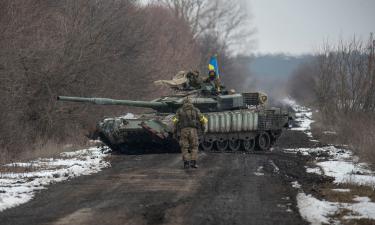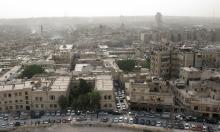The new class and the workers
By Gaither Stewart

The protests surrounding the recent G20 in London, celebrations marking the 60th anniversary of NATO, workers uprisings in France , and a mammoth manifestation organized by the CGIL trade union in Rome underline the abyss separating the New Class of capital from labour. The current and spreading revolt of labour against capital seems to mark the second phase of the crisis of capitalism, as a consequence of the financial crisis caused by the New Class of an elite that has chosen to separate itself from labour in the Occidental world.
Today’s global New Class consists of the financial class that has bought and subjugated its second component, the political class, which fronts for it, protects it and legislates for it. Today’s New Class thus consists of a political elite with its armed wings of police and military and agencies of control and the shadowy, illusory, virtual world of finance. The two wings of the New Class blend to such a degree that it is impossible to determine where the financial world ends and the political world begins. The real conflict is not between them. The real conflict is a class conflict, deeper and more evident today than anytime since the industrial revolution. It is the conflict between the New Class and the rest of the world.
Cause and effect. Social justice and exploitation, good and evil, right and wrong. Today’s violent crisis, we now know, is systemic and global. The systemic crisis nurtures the violence perpetrated by the New Class against the global working class now extended to include also yesterdays’ middle classes, which in the English, French and American revolutions played a revolutionary role, the petite bourgeoisie that from time to time returns to the scene to lead a revolution. The crisis reflects the violent nature of the capitalist system itself that after a century of expansion has in recent years set out to methodically destroy labour and social values acquired after centuries of struggle. In the same manner, the growing violence of the reaction to the inevitable financial-economic crisis was likewise inevitable, justified and long overdue.
The managers love their separation, their rank and position, their money and power, and especially their isolation from the lowly. In their battle against labour they must relish the mass firings left and right of people they have never seen. Above all, they have a predilection for bonuses (they believe they deserve them!) and the fiscal paradises! What a bonanza it has been! But now that the shit has hit the fan, the managers are often the prey. Hide, take your fortune and run for it! For the workers and their newfound allies of the suddenly impoverished lower middle classes have had enough.
World political leaders gathered in their moveable feast in London and Strasbourg are not representative of the people in whose name they claim to act. Most certainly the physically present protesters in London held back by phalanges of Power’s yellow-coated police did not feel represented by the power elite isolated in Europe’s palaces. By now it is crystal clear to those with eyes to see that G 20 political leaders represent the exploiting capitalist class, that is, their partners from the shadowy world of finance. The “Bankers are criminals” slogan waving on the streets of London and the hammer and sickle in Rome are the eloquent condensation of today’s reaction to systemic injustice against the working class, a class now extended also to befuddled middle classes. Significantly, the protesters who broke the windows of the Bank and of England and the Royal Bank of Scotland and stores, bars and hotels in Strasbourg were not only Black Blok and organized anarchists. Many of them came from the infuriated, white-collar middle class.
The workingman’s reading of the G20-NATO gatherings differs radically from the capitalist view. The demonstrations across the heart of Europe , on the bridge over the River Rhine between Germany and France , are testimony that the European working class is not taking it on its knees. No wonder workers see the crisis from another point of view than the New Class elite, which according to media reports echoing all over Europe earn in a day more than workers earn in an entire lifetime, an elite class that believed it possible to separate itself from the people, that found gratification in hiding its criminal money in a fiscal paradise, (and to do what with it, one wonders?).
Considering the workingman’s loss of representation, his lack of a social identity and role in life, it is no wonder that the central question since Karl Marx has today returned to front stage: labour. The submerged masses who have lost their jobs, or are about to, the over 10% of the European and American working class already out of work, who together with their families count 100,000,000 persons in Europe alone, 100,000,000 people who are deprived of hope for a social role, today or in the future. What are they to do? Without a job they are little interested in the usual political discourse. They are angry. They feel like non-citizens. Protesters on the streets of London and Strasbourg did the only thing they could do in a world in which they are not represented—they revolted against the system that is destroying them.
The immediate difficulty of the New Class is that it considers labour something old-fashioned, and of no count. It seems to believe it can eliminate the working class, which for over a century it has tried to crush. It believes it can continue to manufacture money alone, not useful goods! It projects the ridiculous situation of capital without labour. A virtual economy of capital producing nothing. The New Class has reduced globalization to one dimension: financial-economic. It has made finance autonomous, marginalizing labour and production. It has eliminated former links between capital, labour, the social state and democracy.
Capital’s former uneasy alliance with labour has been destroyed, with simultaneous destructive cultural, political and social effects. From that rupture between capital and labour emerged today’s crisis. The financial world has separated itself in a so-called elite of “special talents” for which it rewarded itself disproportionately. Incapable of living in the social world, it, together with its political arm, morphed into a New Class, while Finance, unhindered by rules, ethics or responsibility, became primary, thus making the New Class illegitimate, rightfully labeled “criminal” on the streets of London and Strasbourg.
Though labour and protest movements have been repeatedly broken and scattered by Power, they are still out there in society and their number is growing daily. On April 4, 2009 , 2,700,000 workers converged on Rome with their red flags bearing the hammer and sickle. They arrived from every corner of Italy in 40 trains, 4,800 buses and 2 ships, parading through the streets to the tune of Bandiera Rossa and the International. Just as every bomb that falls on Afghanistan creates new resistance fighters, every person fired creates a potential new rebel destined to swell labour’s ranks and sharpen social tensions. The answer of the unemployed as to what protest is about is simple: they want first jobs and then a social role.
One must wonder why in this reality of injustice and violence perpetrated by the New Class, the working class has not already united, risen up in rebellion and crushed their exploiters. Because of the excluded “non-citizen’s” feelings of solitude you might expect that his natural inclination would be toward solidarity. Unfortunately that is not yet the case. Unity is always difficult. His consciousness of himself as an individual has made him also a being that rejects solidarity and detests other men. Nonetheless, the word “unity” is on the lips of all. And on these early spring days in Europe even quotes from Marx are again fashionable. And the word revolution is no longer taboo.
In America as in many parts of Europe one can sense both a fear of action and a fear of non-action. A fear of change. A fear of promises of change. Fear that things can only get worse. A fear like that of a people inhabiting the wrong house, or the haunting fear that the real house it once inhabited is today occupied by usurpers. The New Class counts on the reluctance of people to rebel. For people have never rebelled easily. People count on reforms. People prefer reforms. People do everything possible to avoid real social convulsion and upheaval, even compromising with a Fascist police state.
On the other hand, change is in the air, and not the kind President Obama means. Protesters have recently braved police tear gas, rubber bullets and arrest. Old words are again current: rebellion, Socialism. Today’s political representatives of the New Class are aware that the spirit of mutiny is brewing. President Obama’s use of the word “change” is not enough. No wonder the New Class has armed itself with a set of anti-constitutional laws to crush the revolutionary spirit.
Gaither Stewart, Senior Editor and European Correspondent for Cyrano’s Journal Online, is a novelist and journalist based in Italy. His stories, essays and dispatches are read widely throughout the Internet on many leading venues.
Subscribe to Pravda.Ru Telegram channel, Facebook, RSS!




